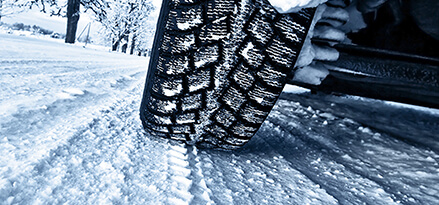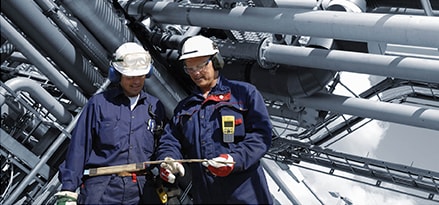
Working in cold conditions
At Imperial, we supply reliable and affordable energy to millions of people, delivering fuels that generate heat, light and transportation. We continue to prioritize safety performance, and our commitment to achieving a workplace where nobody gets hurt is unwavering. As winter weather sets in, here are some reminders about the risks and the mitigating steps you can take to complete work safely.
If body temperature drops even a few degrees below its normal temperature of 37°C (98.6°F), the blood vessels constrict, reducing heat loss from the surface of the skin by decreasing blood flow. Shivering increases the body’s metabolic rate and generates heat. Environmental conditions that cause cold-related stress include low temperatures, high and/or cool winds, dampness and cold water.
Wind chill is the effect of air temperature and movement combined. The higher the wind speed and lower the temperature, the quicker your body can lose heat, and the greater the need for insulation with protective clothing. The chart below compares the effects of air temperatures with and without wind. As wind speed increases, so does the danger of cold air temperatures. When air speed and temperature produce a chill temperature of -32°C (-25.6°F), continuous skin exposure should not be permitted.


Remember to:
- Take frequent breaks to warm up.
- Wear layers and do not allow yourself to sweat when moving from a warm truck to outside and back.
- Seek treatment immediately if you see signs of frostbite (red exposed areas of the skin turning white) or hypothermia (confusion, disorientation, slurred speech, uncontrolled shivering).
-

Expert insights
The industry is constantly evolving. It's never been more important to incorporate new technologies and to select the right products for your fleet. Stay ahead of the competition by tapping into our tried-and-true expert insights and continuous innovations, and unlock real benefits for your fleet.

